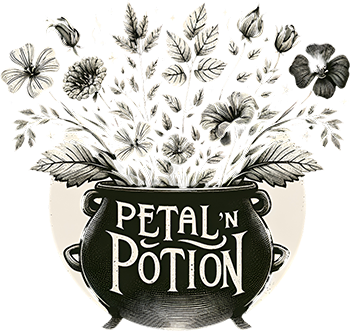W o r m w o o d
Wormwood (Artemisia absinthium) is a herb known for its bitter taste and medicinal properties.
It has been used for centuries in various traditional medicine practices and is most famous as an ingredient in the alcoholic beverage absinthe.
Benefits
- Digestive Aid: Often used to relieve digestive disorders, including loss of appetite, stomach pain, and bloating.
- Antimicrobial Properties: Contains compounds that may help fight off bacteria, fungi, and parasites.
- Anti-Inflammatory: Known to reduce inflammation, which can be beneficial for conditions like Crohn’s disease.
- Pain Relief: Used in traditional medicine to alleviate pain from various ailments.
- Menstrual Health: Sometimes utilized to regulate menstrual cycles and alleviate menstrual pain.
Active Compounds
- Thujone: A compound with potential medicinal benefits but toxic in high doses. It is the primary active ingredient in wormwood.
- Absinthe: Contributes to the herb’s antimicrobial and antioxidant properties.
- Flavonoids: Provide antioxidant effects that protect against cellular damage.
- Tannins: Known for their astringent properties, which can help in treating indigestion and diarrhea.
Who Should Avoid This
- Pregnant and Nursing Women: Due to the risk of thujone toxicity and potential harm to the fetus or infant.
- Individuals with Seizure Disorders: Thujone can trigger seizures, so it’s crucial to avoid wormwood if you have a history of seizures.
- People with Allergies to Asteraceae Plants: Those allergic to ragweed, marigolds, daisies, and chrysanthemums should avoid wormwood.
Warnings
While wormwood has several health benefits, it is important to be aware of potential risks:
- Thujone Toxicity: High doses can cause toxicity, leading to seizures and other serious health issues.
- Pregnancy and Breastfeeding: Not recommended due to the potential for adverse effects.
- Allergic Reactions: Can cause allergic reactions in some individuals, especially those allergic to other plants in the Asteraceae family.
Usage Guidelines
For short-term use, wormwood is generally considered safe when used in small doses. For digestive issues, it can be taken for a few weeks under the guidance of a healthcare professional. However, due to the risk of thujone toxicity, it is not recommended for long-term use without medical supervision. Always consult with a healthcare provider before starting any new herbal supplement.
